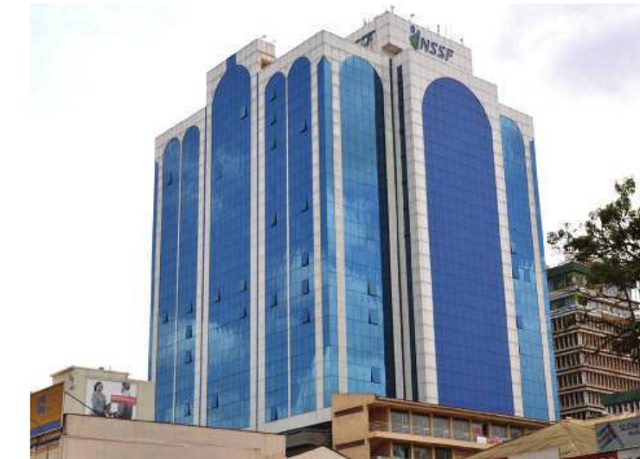
Furthermore, provision should be made for voluntary contribution by workers over and above their mandatory contribution and voluntary contributions by self-employed persons. Consequently, all employers registered under the Companies Act, Partnership Act or any other law for the time being in force governing the establishment of business entities should be specified as persons who shall register as contributing employers.
The proposals also include giving the Fund’s Board of Directors discretion to use in-house expertise and fund managers in managing investments of scheme funds.
The others are; allowing the NSSF to lend to government; including a provision that any amount of contribution and any other sum together with interest or penalty thereon may be recovered from a third party who owes money to a defaulting employer; to amend the Act to provide that an employer who fails or refuses to remit contributions within the prescribed time may have the business managed by a third party.They would also provide that the annual levy paid by the NSSF to the Uganda Retirements Benefits Regulatory Authority be capped.
Rubanda County East Member of Parliament, Henry Musasizi, who also doubles as the Chairperson for the Finance Committee in Parliament told The Independentthat the new move provides a win-win situation.
“There were strong arguments on whether to open up the sector or amend the NSSF Act to include new reforms,” Musasizi said, adding that he believes over 80% of the issues that were included in the Bill would be considered in the amendments to the NSSF Act.
He said that Parliament and his Committee will wait for the NSSF Bill to come and “handle it accordingly.”
Workers too have welcomed the new development. The National Organization of Trade Unions (NOTU) Chairman, Usher Wilson Owere, whose organization has 1.5 workers, told The Independent that liberalization bill had no clear form of guaranteeing workers savings as opposed to the NSSF Act that has government, which he described as a reliable guarantor of the savings.
Owere said workers are looking forward to proposals in the NSSF Act related to reducing the age of accessing benefits and savings; products like health insurance, mortgages and more.
He also said NSSF should be allowed to invest without going through the Public Procurement and Disposal of Public Assets Authority (PPDA) processes which described as cumbersome.
He watered down the arguments of NSSF being a monopoly, saying that the laws in Uganda including the Uganda Retirement Benefits Regulatory Authority Act which allows other groups to form saving schemes under its supervision.
On government borrowing from NSSF, he said the new development will support economic development like it has been the case in neighboring countries like Tanzania.
Tanzania’s National Social Security Funds currently invests in various infrastructure projects in partnership with the government with the construction of a 680 metre long Kigamboni bridge that connects Kurasini in Dar esSalaam to Kigamboni in which NSSF provided 60% of the funding.
In addition, all members of NSSF have access to medical care through the Social Health Insurance Benefit upon undergoing registration with only one facility of their choice – public and private – as part of their 20% contribution.
Owere, however, insists that there should be a mechanism in place to ensure that government borrowing does not compromise workers savings.
Contrary views
Critics, however say the Cabinet’s decision to withdraw the bill exposes savers money, now about Shs9 trillion, to political, corporate governance and other risks.
They single out NSSF’s previous financial scandals related to land, the irregular sale of treasury bills and bonds, property (buildings), which in many instances have frustrated efforts geared towards fast-tracking some of its important projects.
Joseph Kibuuka, the head of Investment Banking at the brokerage firm, Crested Capital, told The Independent that the Cabinet move comes with challenges and opportunities.
He said the new development might see NSSF and the government negotiate amongst themselves on borrowing terms and conditions and thus eliminate the Capital Markets Authority that has been playing a central role in this arrangement.
“This will make the capital market stunted since NSSF is the major player there,” he said, adding that widening NSSF’s mandate in the sector and giving it a monopoly status would easily lead to misuse of member’s funds.
 The Independent Uganda: You get the Truth we Pay the Price
The Independent Uganda: You get the Truth we Pay the Price


